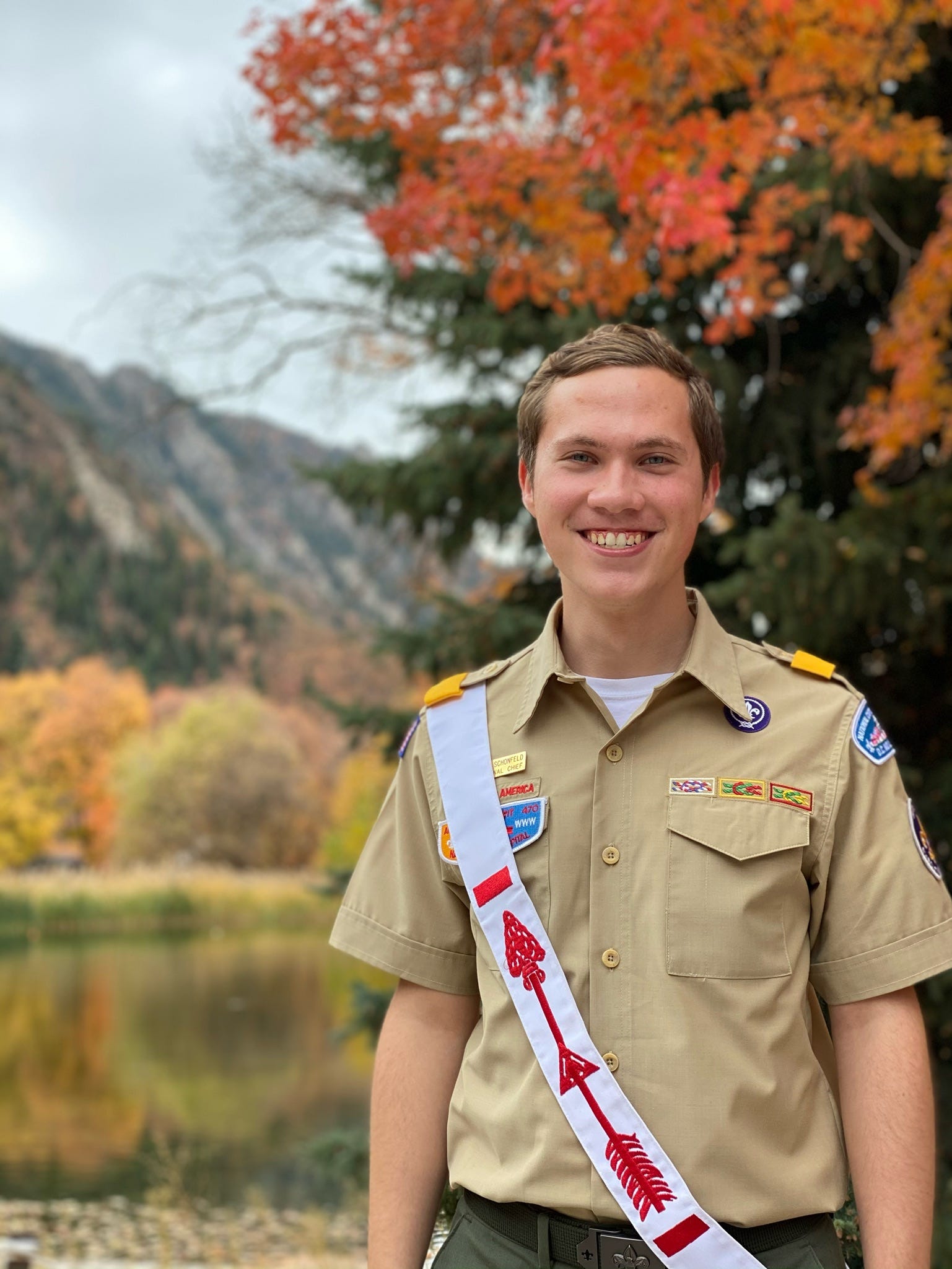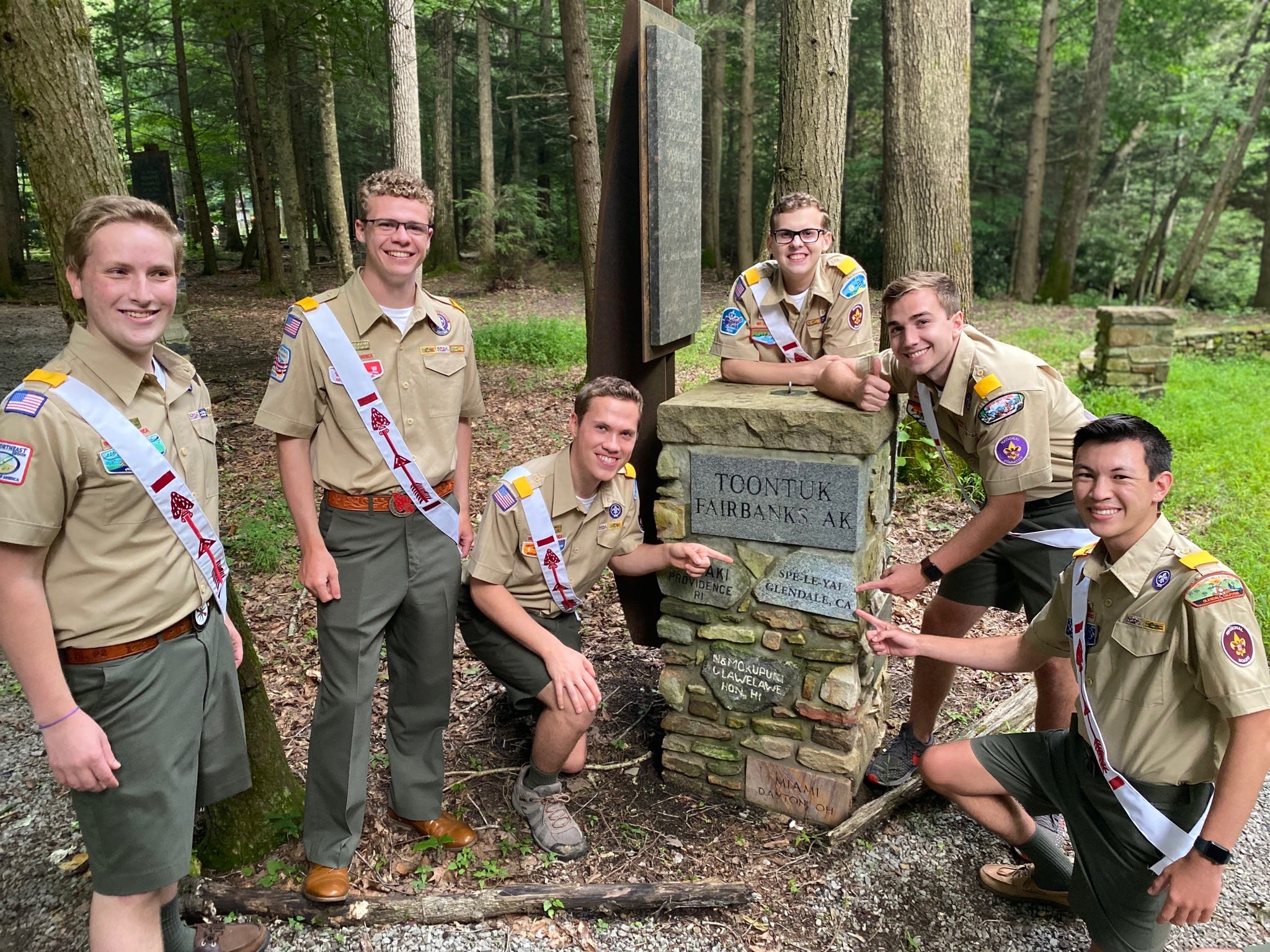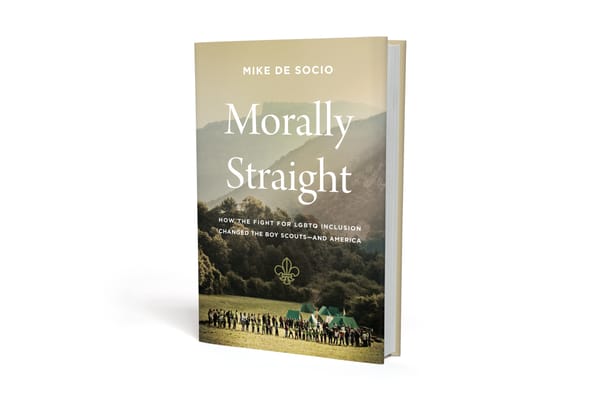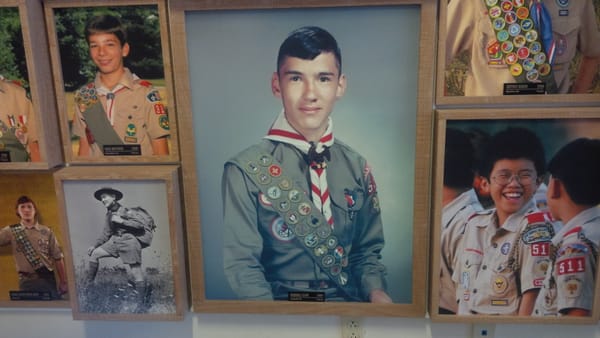Pride Profile: Zach Schonfeld
"Bringing the benefits of Scouting to as many young people as possible is a cause that’s worth fighting for."
When Zach Schonfeld joined the Order of the Arrow, it was mere weeks before the Boy Scouts of America would vote to end its ban on gay youth.
He couldn’t have known it then, but his experience in the program would closely track the evolution of the BSA on matters of diversity.
By the time Schonfeld served as national chief of the OA in 2020, the organization had shifted significantly on policy, and was making strides toward a more inclusive culture.
I asked Schonfeld to reflect on those experiences. His responses are below, edited for brevity and clarity.

What would you tell your young Scouting self?
Scouting will change your life, but not only in the way you think.
I joined the program because my older brother was already involved. For as long as I can remember, I was going to pack meetings in an elementary school cafeteria, racing Pinewood Derby cars, and selling popcorn.
I stayed in the program because of the leadership roles and handy skills. My first position was serving as webmaster. I spent that year designing a first-ever troop newsletter to collect and share weekly updates. Those who know me well today would probably say that was a fitting first role for me.
I later took on a few other troop leadership positions and thought I had experienced the essence of Scouting—leadership opportunities. And that would have been enough.
But now, I remain in the program because of the people. I’ve found a second home here. That isn’t an explicit part of the BSA’s mission. Yet, I view it as the integral part that enables everything else to work. Earlier, it was the element I never considered because it was hidden in plain sight.
I would tell myself to recognize that last reason sooner, because extending that same sense of belonging to every young person who wants to be a scout is the most important—and perhaps most daunting—challenge a leader can tackle.
What future do you want to see for LGBTQ+ people in Scouting?
A future in which no youth or adult ever has to worry about who they are or if an organization they’ve come to love will love them back.
Any time that happens to a youth, it’s time taken away from the offerings of what is otherwise an outstanding leadership development program. I was lucky to have a strong support network compared to so many others, and yet I still waited until I was a sophomore in college to come out to anyone in Scouting as bisexual.
I hope to see a day when that’s a thing of the past. With the progress pushed forward by so many, I’m more optimistic now that we’ll achieve that future.

Why is Scouting worth it?
At its most fundamental level, Scouting exists to prepare young people. I think that’s a virtuous mission. I can only speak for myself, but I found the program to be effective in meeting that mandate.
This aspiration is why conversations about inclusion are important. Bringing the benefits of Scouting to as many young people as possible is a cause that’s worth fighting for.
What else should I know about your Scouting story?
I’m a bit of an optimist. The same goes for eliminating accessibility and inclusion issues in Scouting. Don’t get me wrong, there’s still plenty of obstacles. But consider my time in Scouting as an example: Although I wasn’t privy to it at the time, when I first became a Scout, the BSA’s position was that not being straight was “inconsistent with the obligations” of the Oath and Law.
I was inducted into the Order of the Arrow three weeks before the BSA voted to lift its ban on gay youth. The month before my first NOAC—and first national event, for that matter—the ban for adults was lifted.
The year I served as national chief, Scouting held its first official LGBTQ+ affinity programming at a national event (to be clear, the credit for making that happen goes to others). And now, ArrowPride is an official part of NOAC.
If you were to tell me that progress seven years ago at my first NOAC—or that I didn’t have to keep my identity secret anymore—I wouldn’t have believed it. We still face many challenges, including barriers for groups outside of the LGBTQ+ community. But that’s reason enough to be optimistic for what the next seven years hold.


